5 Plastic Products To Avoid In Your Garden – And How You Can Embrace Plastic Reduction
The less plastic we use, the healthier our planet will be. Here are some big plastic gardening products to avoid, plus some alternatives.
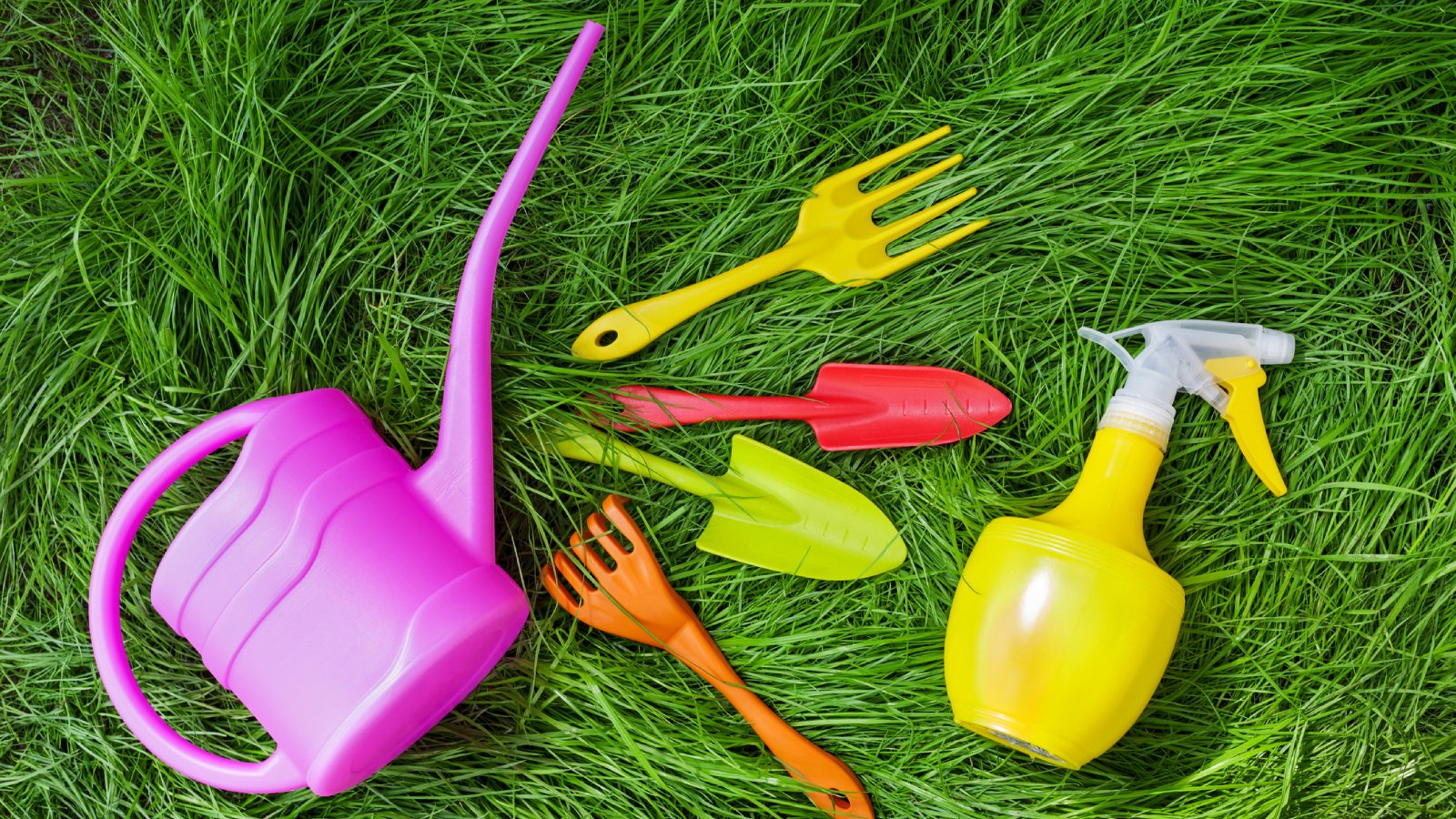

Plastic reduction in the garden supports the concepts of sustainability, which is a growing trend in gardening. There are many ways to practice more sustainable methods, including using less plastic or avoiding it altogether. Plastic is a modern convenience that has infiltrated many areas of our lives, including gardening, but it has many negative consequences.
Most plastic products are not renewable and do not decompose readily. As a result, hundreds of thousands of pounds of plastic join the waste stream annually, leading to harm to ecosystems, animals, and even human health. Recycling is good, but plastic reduction is even better, and you can start in the garden.
How to Stop Using So Much Plastic in the Garden
Plastic has become ubiquitous, so cutting down on plastic in the garden can be challenging. It’s not impossible, though, and might be easier than you think. Start by replacing plastic items with other materials.
You can also recycle, upcycle, or reuse plastic products instead of simply throwing them away. Affordable replacements are available and are typically not very expensive, especially if you reuse items. Here are some ideas to get you started.
1. Plastic Pots, Planters, and Raised Beds
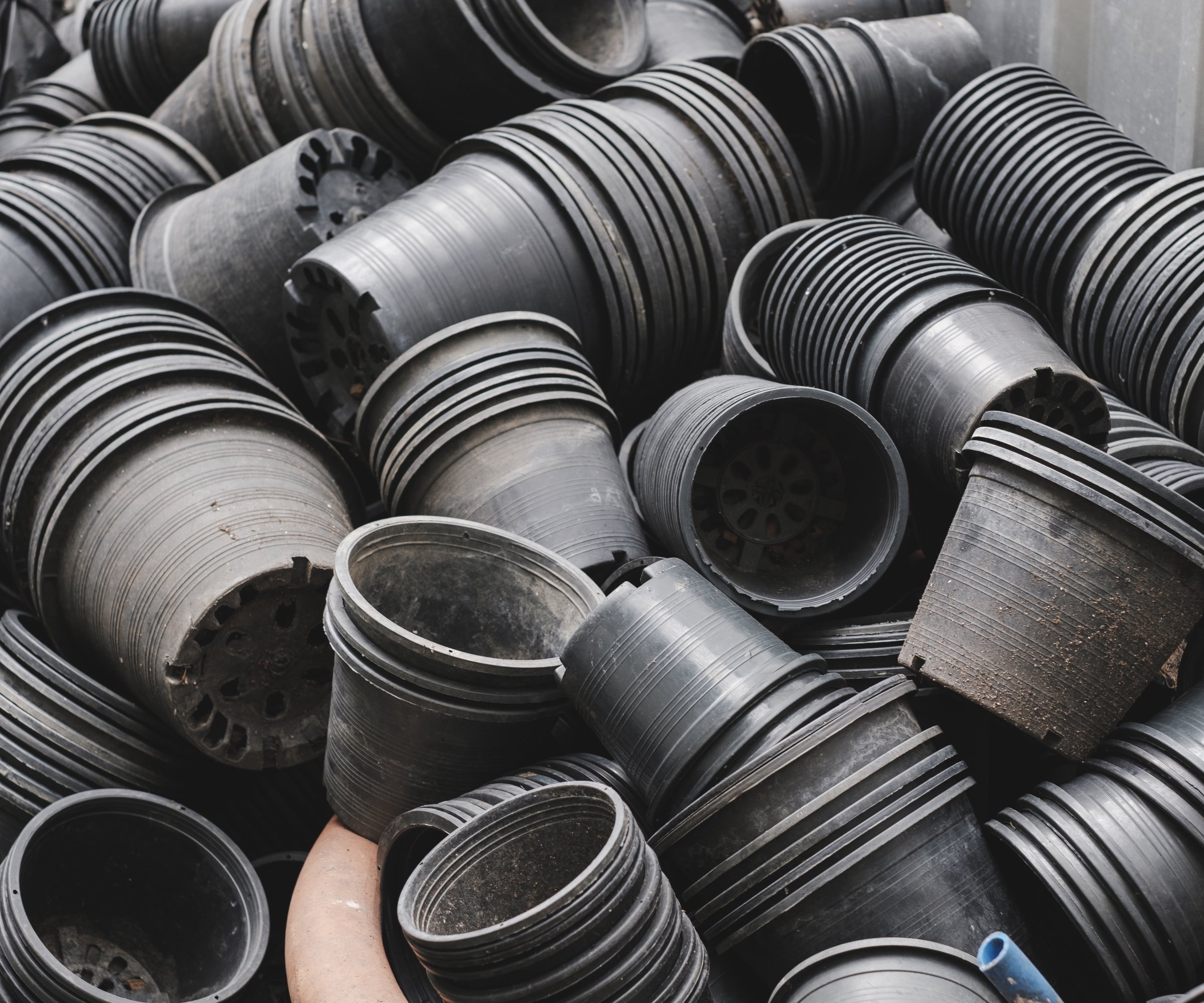
Many containers, from small pots to large vegetable planters, are plastic because they are cheap, lightweight, and easy to use. But are plastic planters safe for vegetables and the people who eat them? Some types of plastic are considered food-safe, but some contain toxic chemicals that can leach into the soil and get into plants.
It’s best to avoid all plastic for growing vegetables but, if you do use plastic, choose food-safe options. A better alternative is to use non-plastic planters and pots. Use containers made from terracotta or ceramics. Wood or metal planters are also good options.
Garden upcycling is a cost-effective way to replace plastic planters. Look for things like old barrels or metal tubs at flea markets or even cast-off materials at construction sites. Just be sure they have not been treated with toxic chemicals.
Gardening tips, videos, info and more delivered right to your inbox!
Sign up for the Gardening Know How newsletter today and receive a free copy of our e-book "How to Grow Delicious Tomatoes".
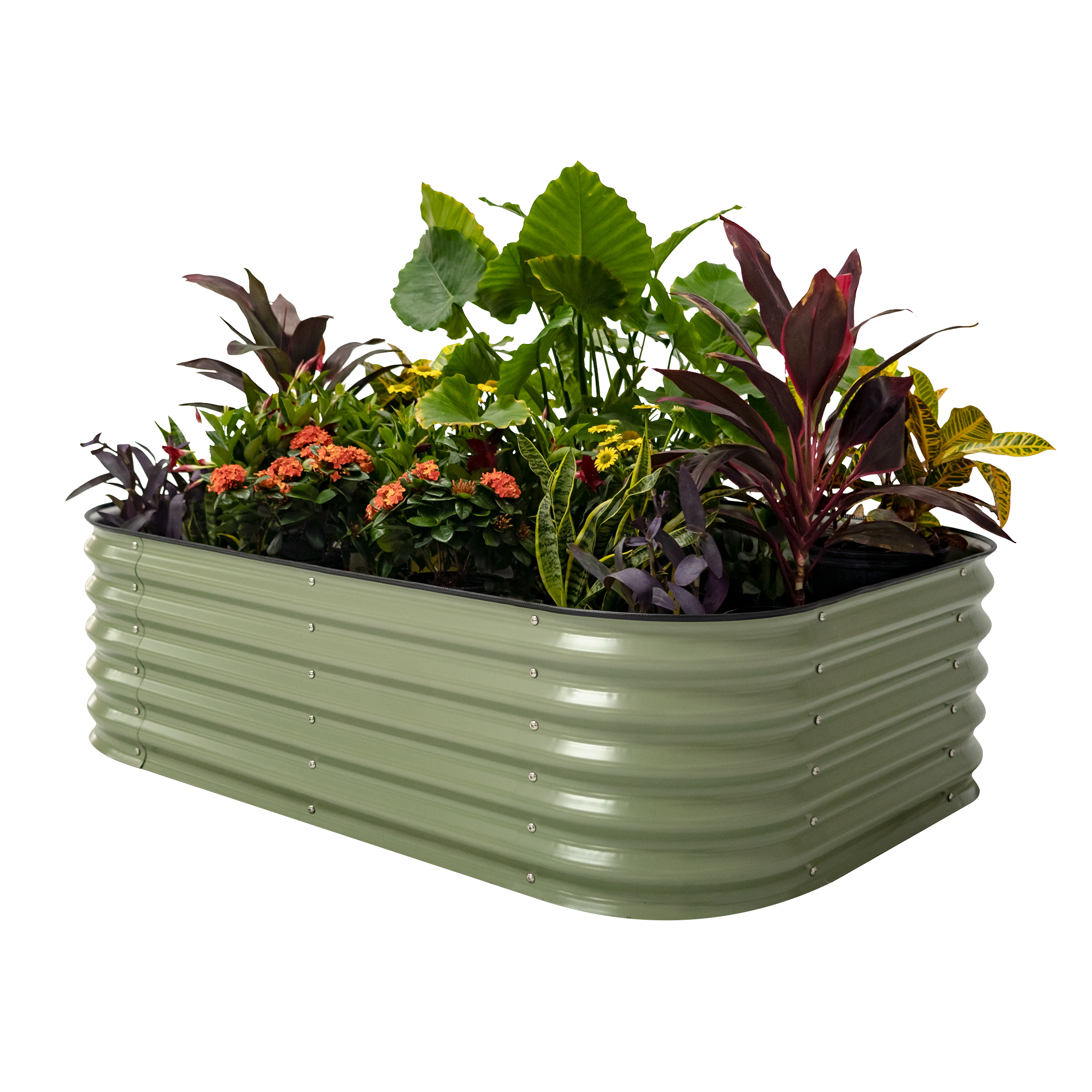
Vego's raised garden beds are made of 100% recycled metal and have a 20+ year lifespan. Perfect for the sustainable gardener.
2. Black Plastic Weed Barriers
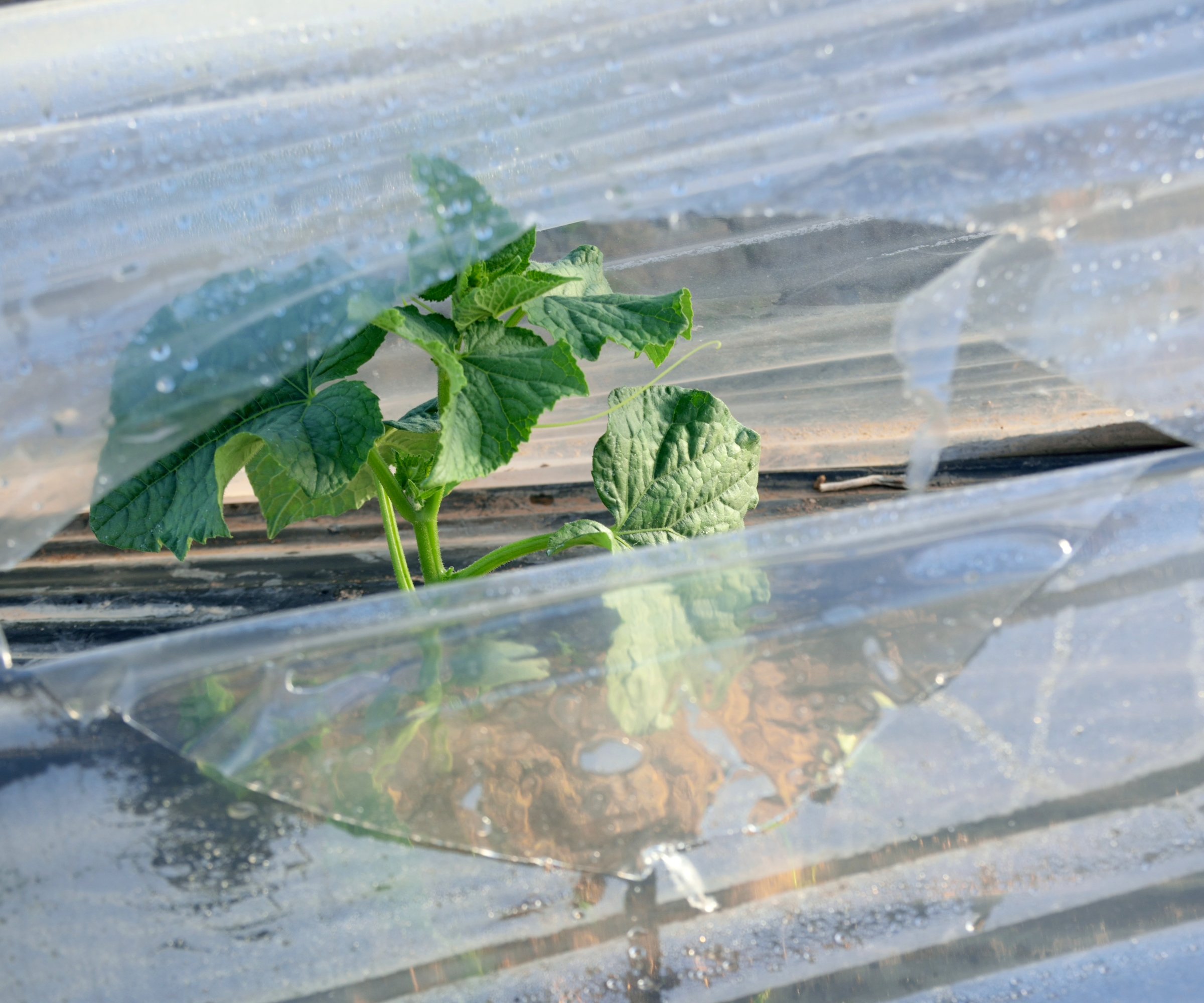
This is a very common material, but is black plastic good for gardens or bad? There are benefits of using black plastic in the garden - it warms the soil, it holds moisture in the soil. And of course plastic suppresses weeds. Unfortunately, this material doesn’t last long and is usually tossed after a year or two of use. As it deteriorates, it sheds plastic into the soil.
Using black plastic in the garden is common, but landscape fabric is an easy alternative. It’s also cost-effective because it should last longer. You can easily cut fabric to the right size and either cut or burn holes in it for planting. At the end of the season, lift it up and roll it up to store for next year.
3. Plastic Plant Markers and Ties
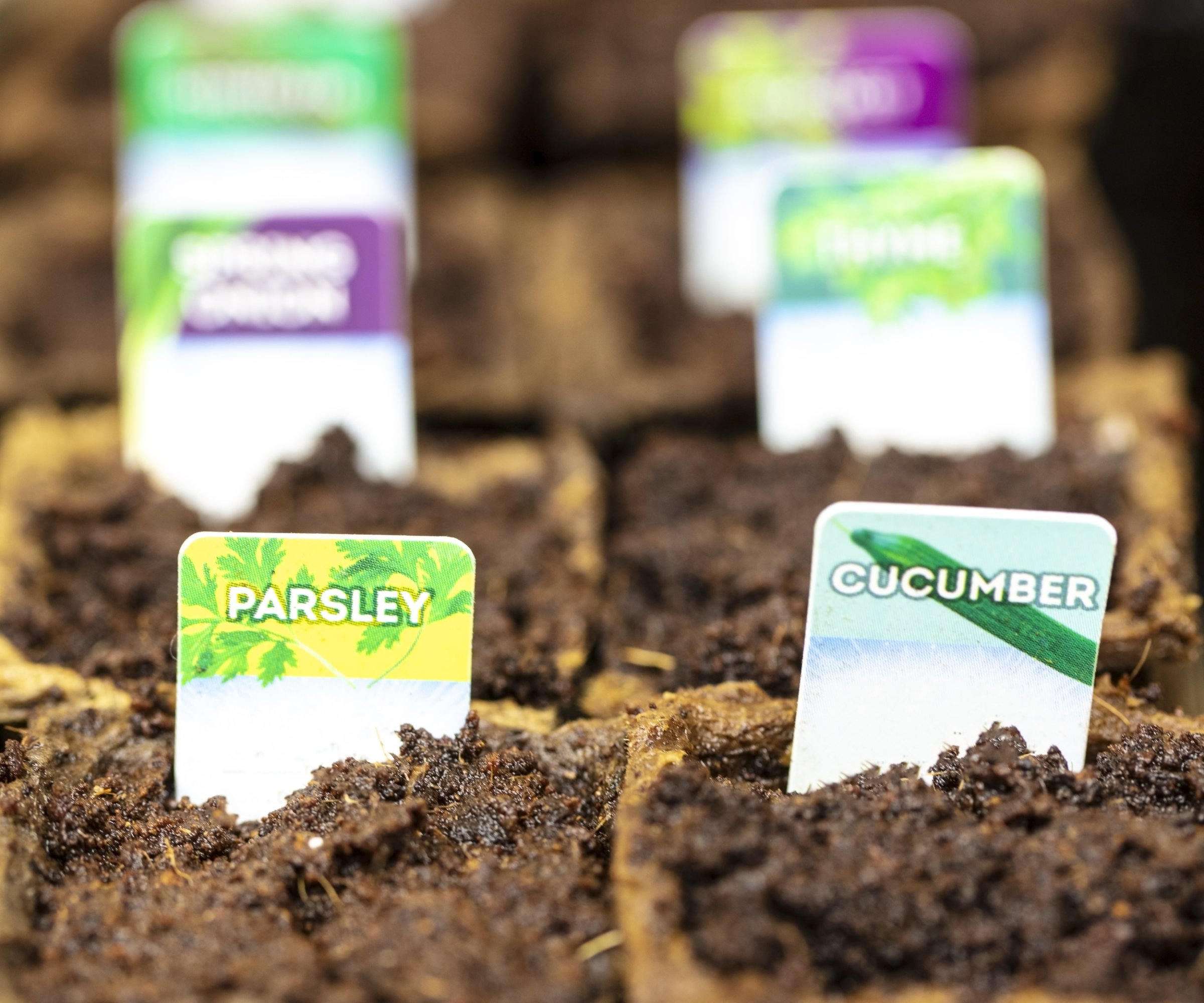
Even small pieces of plastic can cause harm, decomposing in the soil and adding microplastics to the environment. Plastic signs and markers for plants and rows as well as ties used to stake or train plants are easy and cheap, but there are better alternatives.
Replace plastic ties with twine, which is sturdy, reusable, and inexpensive. Recycle old clothing, pantyhose, or rags. Cut them into strips to use as ties. Get creative to make your own plant markers. Popsicle sticks make a great alternative.
4. Plastic Tools
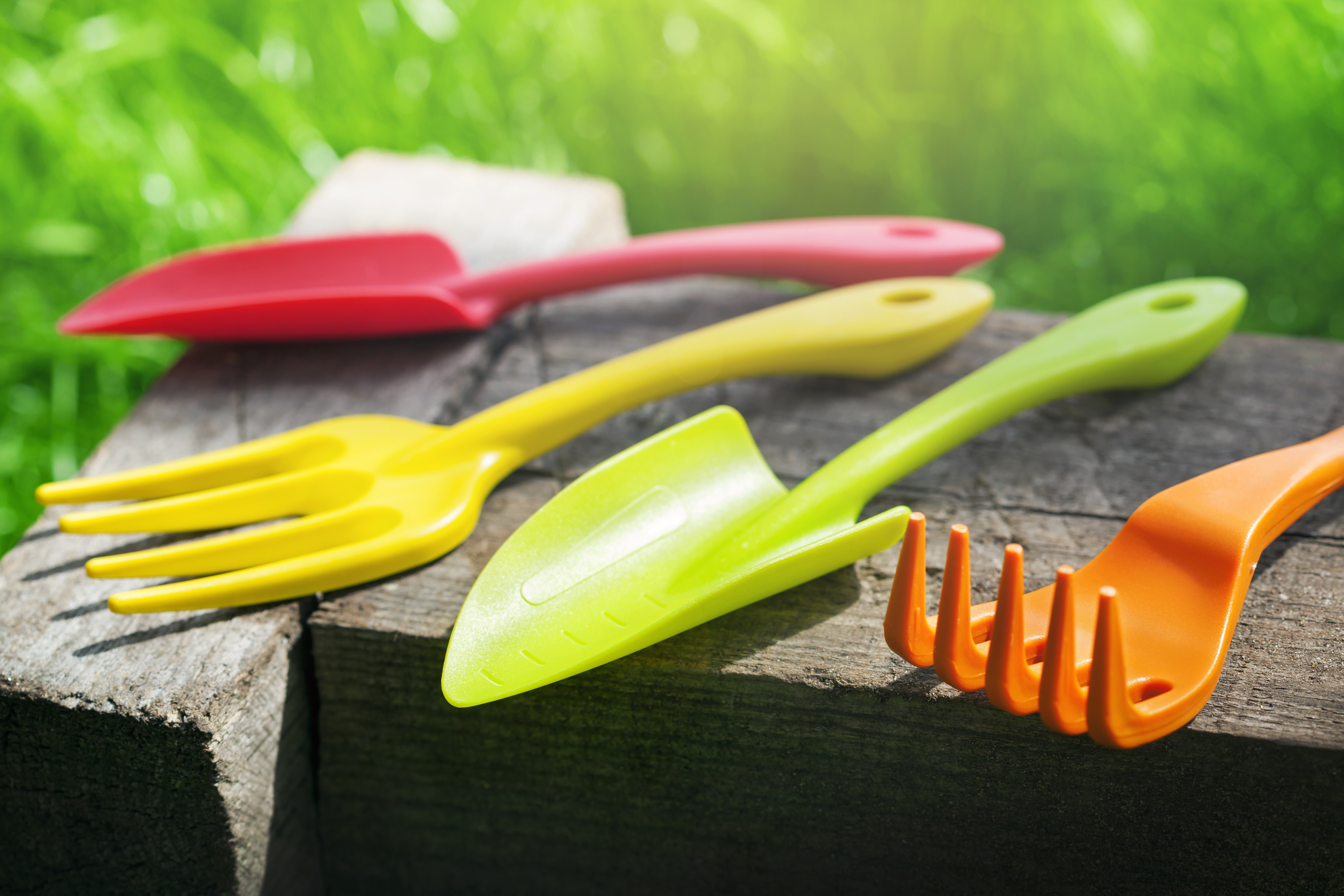
Plastic tools may not add as much microplastic to the soil as plastic row covers or containers, but they are still unsustainable. One of the biggest issues with plastic gardening tools is that they aren’t very sturdy and need to be thrown away and replaced more often than other types of tools.
Wood and metal tools are more expensive, but they are good investments that last much longer. Save up for these sturdier tools, or consider sharing sets with neighbors.
5. Plastic Packaging
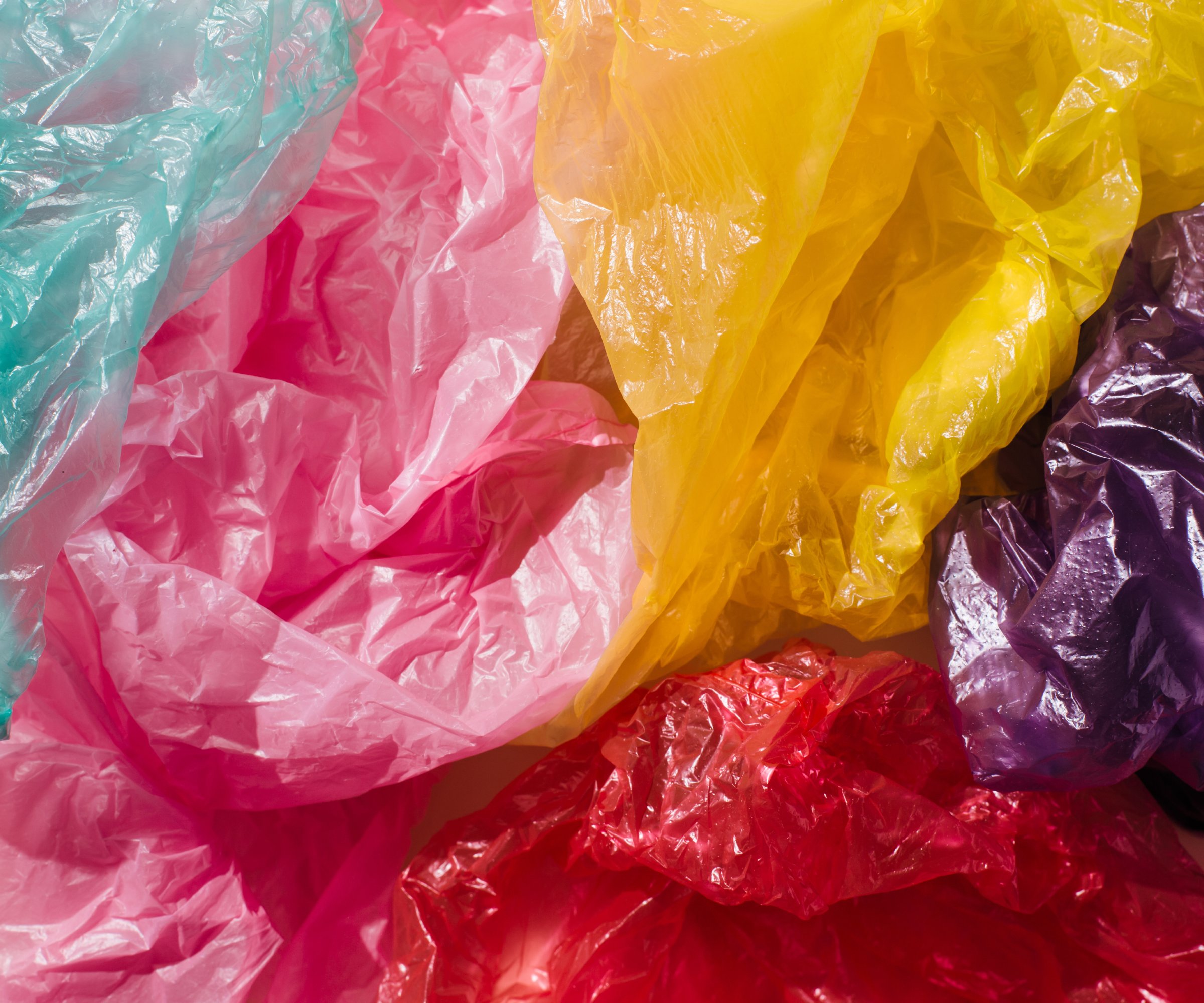
Packaging is tricky because so many gardening products come in plastic and may be the only options at the garden center. Plastic bags and bottles are disposable and are thrown into the garbage frequently, adding to the plastic waste stream. Avoid them if you can.
Some garden centers are beginning to offer the option of refilling bags for things like potting soil and compost. Use a fabric bag to load up on your needed garden materials instead of using one-time plastic bags. You may be able to reuse some other plastic containers that are impossible to replace, like spray bottles. Use them as misters for indoor houseplants or to spray homemade pest deterrents on outside plants.
Frequently Asked Questions
Does Plastic in Soil Affect Plant Growth?
Plastic products eventually break down into microplastics, tiny pieces of plastic that can be found in soil and waterways. They are well known to be harmful to animals. They may also affect plants by changing soil chemistry and microbe populations.
Which Plastics Are Safe For Gardening?
One of the concerns of using plastic in gardens is safety. Plastic can leach chemicals into soil that then get into food and impact human health. Avoiding plastic is best, but you can also use food-safe plastics: high-density polyethylene (HDPE), low-density polyethylene (LDPE), polypropylene, and polylactic acid (PLA).

Mary Ellen Ellis has been gardening for over 20 years. With degrees in Chemistry and Biology, Mary Ellen's specialties are flowers, native plants, and herbs.
-
 Looking For Plants To Give You The Soft And Fuzzies? Try These 5 Fuzzy Leaf Plant Options
Looking For Plants To Give You The Soft And Fuzzies? Try These 5 Fuzzy Leaf Plant OptionsLovers of texture, drama, silver foliage and tactile plants will adore these special sensory garden additions. These fuzzy leaf plant options will leave you all aglow
By Susan Albert
-
 Get Ready For A Summer Of Hummers! Grow These Full Sun Hummingbird Plants and Flowers
Get Ready For A Summer Of Hummers! Grow These Full Sun Hummingbird Plants and FlowersIf you’re lucky enough to enjoy a sunny backyard, make sure you are maxing out on your pollinator opportunities and grow these full sun hummingbird plants and flowers
By Tonya Barnett